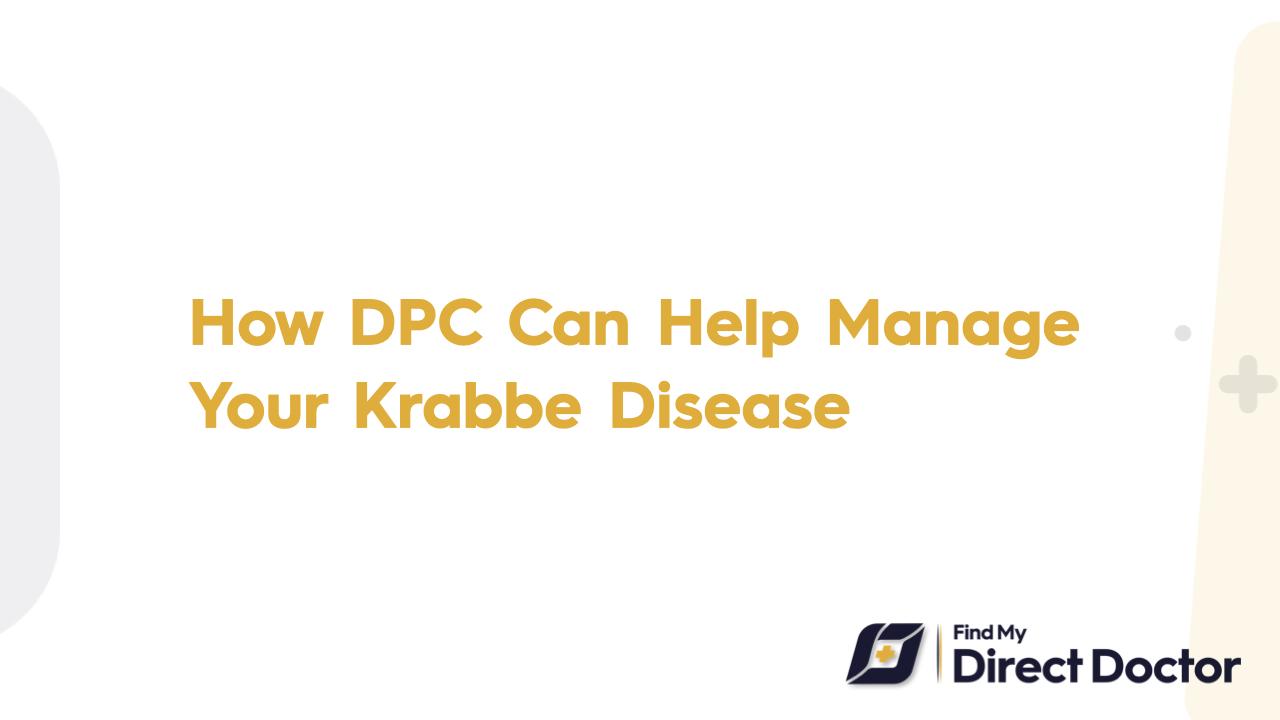



Globoid cell leukodystrophy, another name for Krabbe disease, is a rare genetic neurological condition that impacts the nervous system. It is brought on by a lack of the enzyme galactocerebrosidase (GALC), which the body uses to break down certain lipids. Without this enzyme, toxic compounds build up in cells, especially in the brain and nervous system, causing white matter—which is essential for nerve communication—to degenerate.

Although the severity of Krabbe disease symptoms might vary based on the age of onset, they usually start in infancy. The illness manifests in infants as muscle weakness, lack of motor skills, developmental delay, and irritability. Children may have convulsions, visual and auditory impairments, and mobility issues as the illness worsens, which frequently results in paralysis. In certain instances, the illness may also result in reduced life expectancy and cognitive impairment. Krabbe illness may advance more slowly in older children and adults, but the symptoms, which include loss of coordination and stiffness, can still be quite severe.
By providing individualized care that takes into account each patient's particular needs, Direct Primary Care (DPC) can be extremely helpful in the management of Krabbe disease. A primary care physician who can coordinate the several facets of treatment and offer ongoing care is directly accessible to patients under the DPC model. Owing to the intricacy of Krabbe disease, DPC makes it possible to regularly check on the patient's health and take prompt action to treat problems and manage symptoms.
In order to enhance their quality of life, people with Krabbe disease can benefit from supportive therapies such physical therapy, dietary counseling, and pain management techniques through DPC. Regular screenings are another priority for DPC doctors in order to track the disease's course and modify treatment regimens as necessary. Furthermore, because Krabbe disease can result in neurological and cognitive problems, DPC doctors can assist treat these elements of the condition early on and refer patients to experts when needed, guaranteeing that the patient receives a thorough care plan.
Direct Primary Care's focus on individualized and easily available care is its primary advantage for patients with Krabbe disease. Patients can have more in-depth conversations about their illness, available treatments, and any worries they may have because they spend more time with their primary care physicians under the DPC model. Those who are managing a complicated, progressive illness like Krabbe disease may find this direct, continuing interaction with a healthcare professional very beneficial.
DPC also provides convenience and shorter appointment wait times, which is important for individuals with long-term illnesses who might require regular care. Additionally, DPC makes certain that the care plan is modified as the patient's health changes, which is crucial in cases of progressive diseases like Krabbe. DPC's proactive approach makes it possible to guarantee prompt symptom management and thorough treatment of every facet of the illness, from physical therapy to neurological care.
A key component of the care approach in DPC is the personalized treatment of Krabbe disease. Krabbe illness necessitates a customized treatment strategy because its severity and course vary. To develop customized care plans that emphasize symptom management, function improvement, and improving the patient's quality of life, DPC doctors collaborate closely with patients and their families.
This could involve individualized speech treatment to address communication issues, physical therapy regimens to preserve mobility, and dietary changes to promote general health. Additionally, thorough management of all facets of Krabbe disease is ensured by routine neurological function monitoring and collaboration with specialists. Patients and their families may rest easy knowing they have a committed medical team to support them at every stage of the illness thanks to the DPC model, which permits flexibility in care and guarantees that therapies are modified as the illness worsens.
Previous Post
Next Post